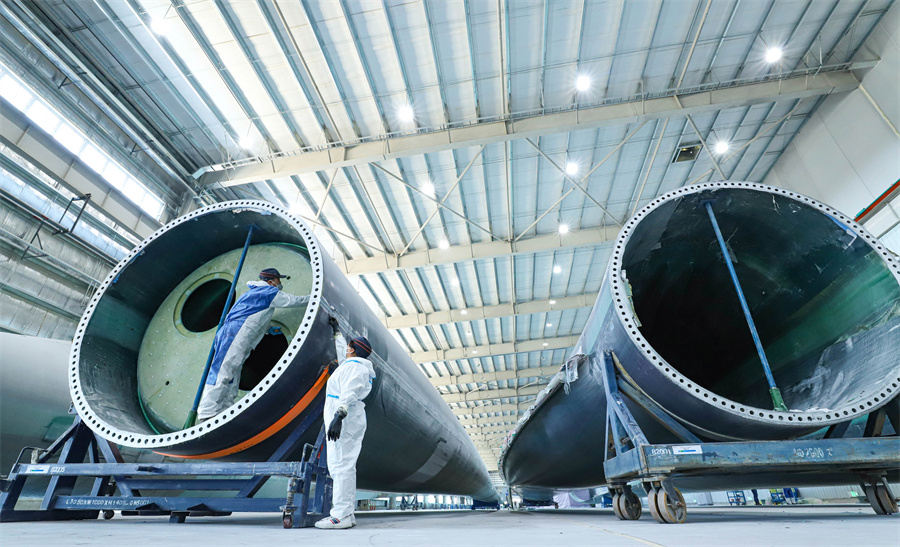Advancing new industrialization, modernization
'New quality productive forces' big game-changer, instead of being just a catchphrase


Such capacities include bolstering the transformation and upgrade of industries, pressing ahead with new industrialization, and boosting technological innovation and research and development of fundamental technologies and materials, Li noted.
He said the company will step up its push in artificial intelligence, augmented reality, virtual reality, next-generation display technology and new energy photovoltaic panels, while improving its digital and intelligent manufacturing capabilities to foster new quality productive forces.
China is the world's largest manufacturer, with its output accounting for nearly 30 percent of the global total, ranking first for 14 consecutive years, according to the Ministry of Industry and Information Technology.
"Intelligent manufacturing, which is a new type of production model formed by the deeper integration of artificial intelligence and manufacturing, is a crucial part of the new quality productive forces," said Zhong Zheng, a deputy to the 14th NPC and vice-president and chief financial officer of Midea Group, another major Chinese home appliance maker.
Zhong said China's intelligent manufacturing has developed rapidly in recent years, and become an important engine for upgrading traditional industries and fostering emerging industries, adding that sci-tech innovation is the core driving force for nurturing the new quality productive forces.
In her proposal to this year's two sessions, she called for more backing for intelligent manufacturing and acceleration of the formulation of standards and an evaluation system for the intelligent manufacturing sector.
The Government Work Report also said China will step up R&D and application of big data and AI, launch an AI Plus initiative, and build digital industry clusters with international competitiveness.
Cao Peng, chairman of e-commerce platform JD's technology committee, and a member of the 14th CPPCC National Committee, said, "Developing new quality productive forces denotes the close integration of cutting-edge computing technologies represented by cloud computing and artificial intelligence with intelligent machine equipment and a digitally savvy workforce."
Cao suggested that enterprises should combine the R&D of indigenous technologies with industrial development, especially amid the tide of AI technological innovation represented by large language models.
He also urged efforts to vigorously promote the construction of homegrown digital infrastructure, which provides powerful computing support for AI applications, and makes the deployment, training and reasoning of AI models safer and more efficient. He also stressed bolstering the digital transformation of enterprises along the industrial chains.
Faced with increasingly fierce international competition, China's emphasis on the development of new quality productive forces will help move the country's manufacturing sector up to the medium-high end of the global value chain, and consolidate the economic recovery momentum, said Pan Helin, co-director of the digital economy and financial innovation research center at Zhejiang University's International Business School.
Saying that enterprises have played a leading part in driving technological innovation, Pan called for more detailed policy measures to step up support for micro, small and medium-sized enterprises, strengthen the protection of intellectual property rights and optimize the business environment to attract capital and technology inflows.




































